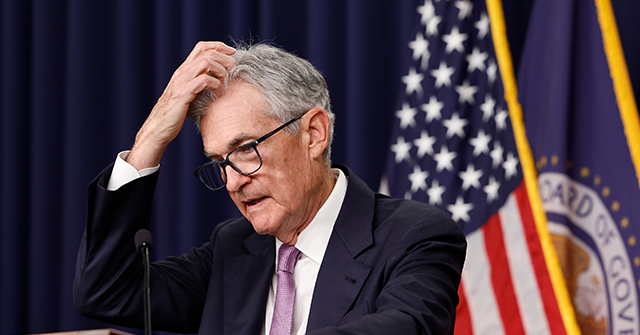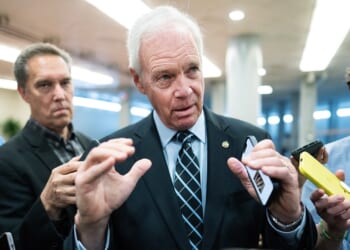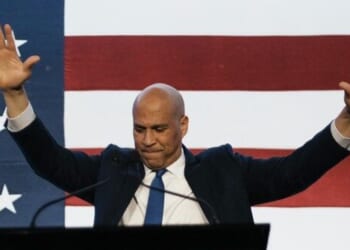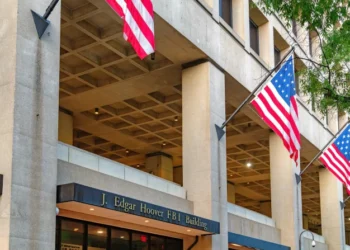Chicago Boycotts America While the Fed Gets Cooked by San Francisco and Pasta
Welcome back to Friday! This is the Breitbart Business Digest weekly wrap, where we review the economic news of the past seven days while sipping on the delicious cocktail of economic vindication mixed with institutional humiliation.
The Federal Reserve released research proving its own rate-holding decision was based on a theoretical mistake. Italian pasta makers are confirming that tariffs work through demand destruction, not price inflation. The government shutdown destroyed economic data we might have used to validate or debunk the Fed’s forecast. The Supreme Court is about to reshape central bank independence. And a Chicago politician is using taxpayers’ retirement funds as a campaign billboard while boycotting the safest investment on Earth.
Federal Reserve Chairman Jerome Powell speaks during a news conference on September 18, 2024, in Washington, DC. (Anna Moneymaker/Getty Images)
I Left My Broken Economic Theory in San Francisco
It’s been quite a week for people who believe the Federal Reserve should actually read its own research before making trillion-dollar decisions that affect everyone’s mortgage payments. Jerome Powell, the nation’s central banker, has spent the better part of 2025 explaining why the Fed couldn’t cut interest rates because—and we quote him directly from June—tariffs would “show up more” as “tariff inflation.”
Researchers at the San Francisco Fed released a paper this month examining tariff policy from 1870 through 2020 across the United States, the United Kingdom, and France. Their conclusion: when countries raise tariffs, inflation actually falls, not rises. A roughly four percentage point increase in average tariffs lowered inflation by about two percentage points while raising unemployment.
This isn’t a close call. The pattern held across different time periods—before 1913, the interwar period, post-WWII. Higher tariffs correlated with lower prices and weaker economic activity.
Not upward price pressure. Downward.
Powell’s entire rationale for holding rates steady—protecting us fragile Americans against tariff-driven inflation—was built on what the Fed’s own research now shows was a foundational misunderstanding. Oopsies!
Proof in the Pasta Aisle
You want evidence that tariffs don’t raise consumer prices? Look at Italian pasta.
Italian pasta makers are facing combined tariffs of 107 percent—92 percent from Commerce Department antidumping duties and 15 percent from Trump’s EU tariff. Rather than raise prices on boxes of rigatoni, they’re preparing to exit the U.S. market entirely. Giuseppe Ferro, CEO of La Molisana, put it bluntly: “No one has those kinds of margins.”
In other words, the tariffs cannot be passed on to consumers, and even the importers are not absorbing them. The foreign producers are being forced to mangia the tariffs.
By the way, do not blame Trump if your favorite pasta vanishes from the shelves. The huge tariffs the Italians are facing are not Trump’s EU tariff but anti-dumping tariffs imposed by an independent probe. In other words, they would have been applied by any administration.
No Data Collection, No Data Reports
As everyone knows, the government shutdown lasted six weeks and was the longest in history. Importantly, it lasted through the collection periods for October’s consumer price index and jobs reports. This wasn’t just a delay in releasing data that was already collected. The shutdown prevented the data from being collected at all.
The Labor Department’s Bureau of Labor Statistics conducts surveys asking households about employment and spending during specific time windows. Apparently, they can’t retroactively ask someone in November about their labor market participation in October. The moment passes. The data vanishes like the Golden Gate Bridge on a foggy day.
So, now we’re in the surreal position of having a Fed chair whose entire rate-holding decision was premised on tariff inflation fears—fears that the Fed’s own research just demolished—while missing the very economic data that might have validated or invalidated his forecast. October CPI might never exist. The October jobs report might vanish into the bureaucratic void.
The Fed is, as Karoline Leavitt said, “flying blind at a critical period.” Which means Powell made a major monetary policy error based on faulty theory, and we might never get the actual data that would have shown it to him in time.
Let Them Cook
The Supreme Court this week scheduled arguments for January 21 on whether President Trump can remove Federal Reserve Governor Lisa Cook.
Cook has been hanging on since late August, when Trump indicated he wanted her gone over mortgage fraud allegations that she denies. The Court scheduled the case for the last possible date of the January sitting, apparently feeling no sense of urgency about this battle that the media has frequently insisted is an existential crisis for the central bank.
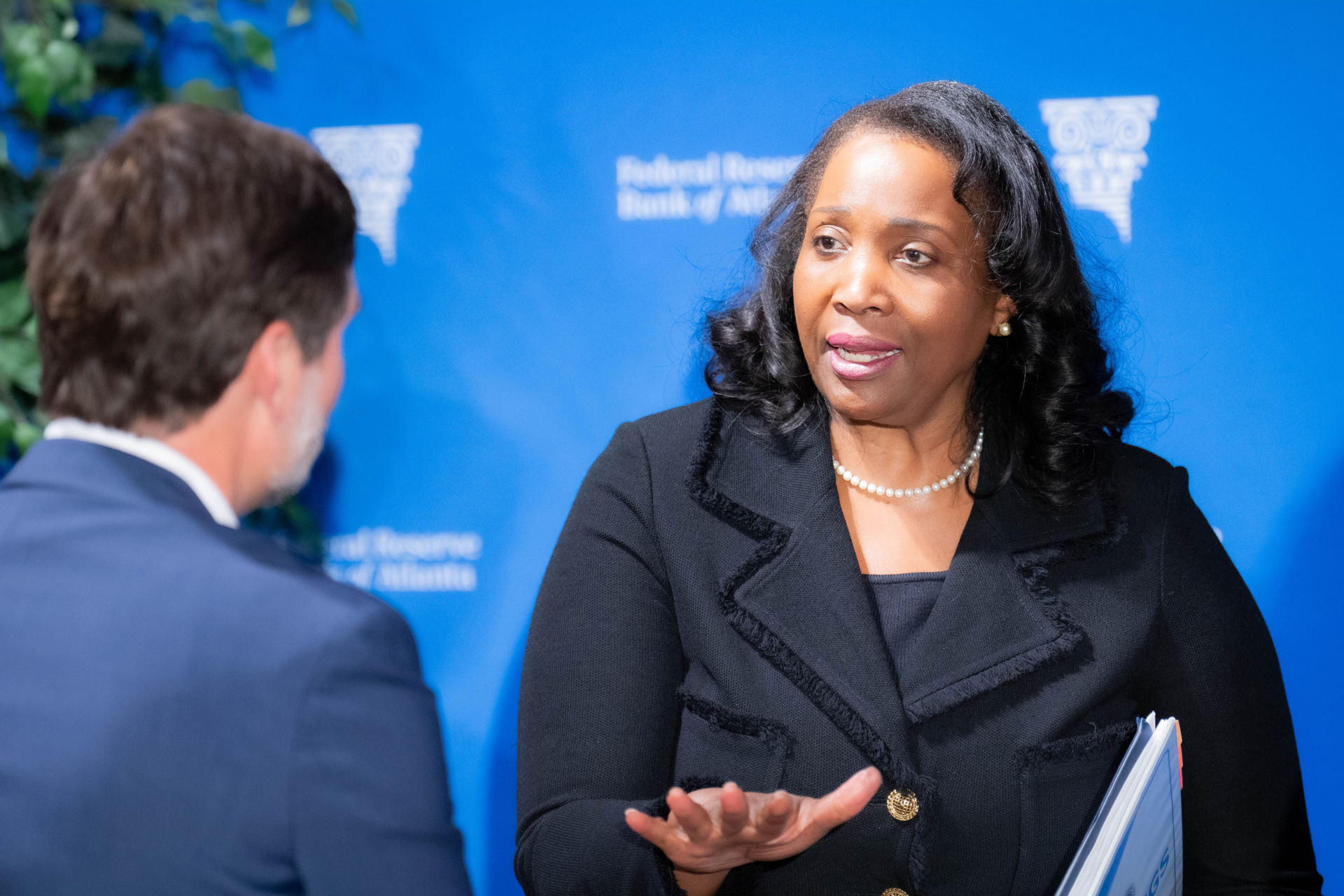
Federal Reserve Governor Lisa Cook delivers the opening remarks at a Fed Listens event hosted by the Federal Bank of Atlanta on June 4, 2025. (Federal Reserve via Flickr)
There may be more here than meets the eye. In December, the Supreme Court will hear a case that could overturn the 1935 Humphrey’s Executor ruling, which shields agency heads from at-will removal. If SCOTUS overturns that precedent (and recent cases suggest they’re inclined to), Cook’s removal becomes legally straightforward. So, the court may have scheduled Cook’s day in court to follow the death of Humphrey’s Executor.
Chicago’s Treasurer Announces She’ll Boycott America
Melissa Conyears-Ervin, Chicago’s treasurer, announced Wednesday that she’s ordering her office to boycott investing in U.S. Treasury securities — not as an investment strategy, but as a political protest against Donald Trump and what she called his “authoritarian regime.”
This is the municipal finance version of an insurrection. Conyears-Ervin obviously hates Trump, which she is entitled to. But Trump doesn’t issue any Treasuries. Those are the debt of the U.S. government, backed by the full faith and credit of the American people. She’s not boycotting authoritarianism. She’s boycotting America.
Here’s the thing: Chicago doesn’t currently hold any Treasury securities. The city held over $200 million in Treasuries within the past three years, but not now. So, she’s announcing a boycott of something the city isn’t doing.
What is Chicago going to invest in if they will not buy America’s debt because their treasurer is mad at the man America elected president?
Conyears-Ervin claims her office can safely earn comparable returns in alternatives like corporate bonds and asset-backed securities. In other words, to protest Trump’s misdeeds, she’s going long corporate America. American leftism is getting weirder and weirder.
Oh, and guess what? She’s running for Congress. Because of course she is.
The Founding Father of South America
This Sunday, November 16, marks the 493rd anniversary of Spanish explorer Francisco Pizarro‘s encounter with the Inca Empire at Cajamarca—one of history’s most consequential collisions between civilizations. This triggered the Spanish colonization of most of South America, which in turn gave birth to the modern nation-states that exist today: Peru, Bolivia, Ecuador, Colombia, Chile, Argentina, Paraguay, and Uruguay.
Pizarro, in other words, is the founding father of South America. It’s the kind of historical milestone that used to warrant reflection on how the world changes, how power redistributes, how established orders crumble. These days, it’s the kind of anniversary polite society has decided not to celebrate.
Have a good weekend.

